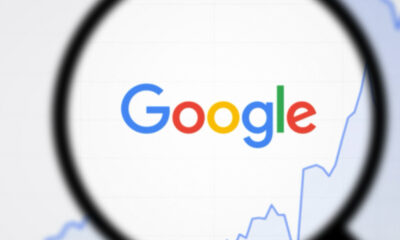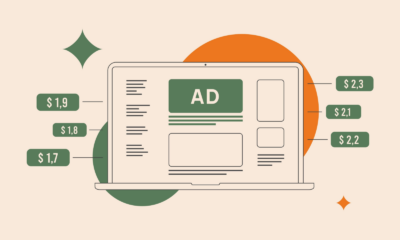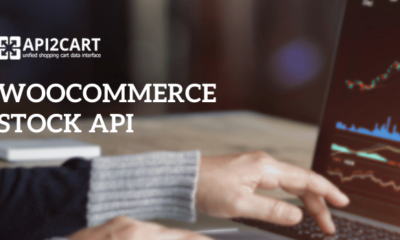TECHNOLOGY
Four Things Facebook Conversion API Tracks

Businesses are constantly pouring revenue into advertising in an effort to connect with potential customers, close sales, and increase their bottom line.
However, this task is easier said than done. Businesses used to rely on the Facebook Pixel to track customer behavior, but cookies have been falling out of favor due to privacy concerns. The Facebook Conversion Application Programming Interface (API) allows you to track individuals throughout the customer journey without worrying about ad blockers, browser restrictions, and connection errors. What exactly is the Facebook Conversion API?
The Facebook Conversion API is a native Facebook tool that empowers your business by allowing you to share both web and offline events from your server directly to Facebook’s server. Formally known as the Facebook Server-Side API, Facebook Conversion API gives every individual who engages with your website or ad, a unique ID. This unique ID enables the server to track their behavior and send it back to Facebook Conversion API, where you can analyze valuable data. Some of these data points include links clicked, abandoned carts, subscriptions, products purchased, and more. This gives your teams a host of worthwhile benefits such as personalized campaigns, increased data control, improved data accuracy, faster load times, and more. Continue reading below to find out about four things Facebook Conversion API tracks below.
Offline Events

Offline events help businesses gain a more complete picture of their customers and website visitors. You can track a wide array of offline events such as email conversions, app conversions, phone call conversions, in-store visits, chat conversions, system-generated conversions, system-generated conversions, and more. Facebook Conversion API gives you precise timestamps, transaction values, returned ad spend amounts, and more. You can also upload offline event data on a regular basis to minimize gaps in the reporting of significant data events. This empowers data teams by giving them the ability to identify trends, measure valuable metrics, and improve return on investment.
Data Activation
Data activation is probably one of the most important aspects of the modern data stack. Facebook Conversion API provides reliable data, but if you wish to make it truly actionable and useful, you might want to take advantage of Reverse Extract, Transform, and Load (ETL) to accomplish this feat. Reverse ETL helps you integrate your data from Facebook Conversion API with internal databases, logistic databases, and Customer Relationship Management (CRM) tools such as Salesforce, Soho, and Insightly. Reverse ETL can help you achieve a 360-degree view of your customers and gain actionable insights your whole team can take advantage of. Reverse ETL increases data visibility and accessibility since all of your data is in one central location. Thanks to Reverse ETL,
Customer Journey
The Facebook Conversion API tracks the entirety of the customer journey from the very click all the way through the checkout process. Your team can see important events such as product views, abandoned carts, related items clicked, purchases, newsletter signups, subscription changes, and more. These key events help you gain a deeper understanding of your customers, gain a good idea of what’s working and what’s not, and identify significant trends within the marketplace. Your teams within your organization can take advantage of this information and target customers, which increases the chances of closing a sale. You can also monitor exactly how customers are engaging with your content, see where you may have gone wrong, and tweak your website wherever it’s necessary to keep customers coming back for more. Combine this with the Facebook Pixel and you’ll be able to accomplish full-funnel visibility and be better prepared to drive customers towards a potential sale in the future.
Ad Performance
One of the most important things Facebook Conversion API tracks is ad performance. You can set specific parameters to measure your ads with and track valuable metrics, which show if a specific ad is connecting with your target audience. You can also look at your data through visual tools such as graphs and charts, which might help your team discover something new about your ads. Your marketing teams have the ability to see which groups are engaging most often with your ads such as demographics, geography, interest, behavior, and more. You can take this valuable information and create more personalized campaigns that could potentially foster a positive yet lucrative outcome for your business. Plus, this data allows business leaders to allocate more revenue towards the ads that are getting the most traction, which increases your bottom line.
Conclusion

Tracking customer behavior and ad performance are incredibly important for any data-driven business. Facebook Conversion API is becoming more popular, especially with the presence of ad blockers, browser restrictions, Virtual Private Networks (VPN), and privacy concerns. Facebook Conversion API is beneficial for businesses both large and small, and comes with a wide array of events tracked by the valuable tool. Some of these include offline events, data activation, the customer journey, and ad performance. All of four of these components are crucial to a business’ success and are great reasons for any business to take advantage of the Facebook Conversion API sooner than later.
Source link



















You must be logged in to post a comment Login